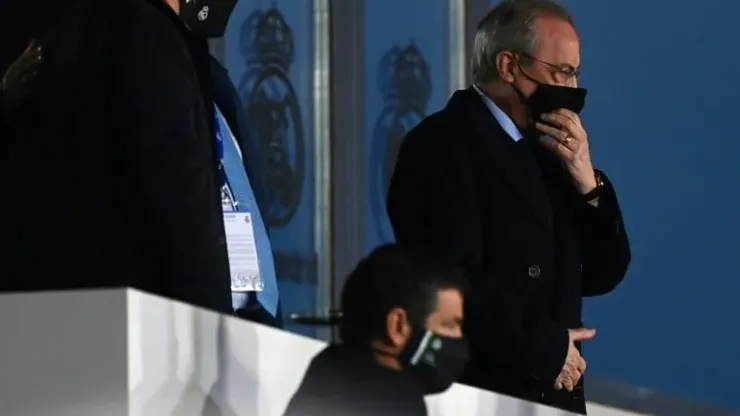Madrid (AFP) – The European Court of Justice (CJEU) will have to decide whether UEFA is abusing its dominant position by opposing the Super League project, a quasi-closed tournament, promoted by several major European clubs.
The question of whether sports bodies can legally block proposed rival competitions under European law has been referred to the Luxembourg-based CJEU by a Spanish judge.
Despite the rapid withdrawal of nine of the 12 clubs within 48 hours of the Super League’s official launch on the night of April 18-19, Florentino Perez, the president of Real Madrid and two other holdouts, have not surrendered.
According to a document that AFP saw on Thursday, a commercial court in Madrid has sent a preliminary question to the CJEU.
It asked whether FIFA and UEFA have violated Articles 101 and 102 of the Treaty on the Functioning of the European Union (TFEU), which prohibit monopolies.
Judge Manuel Ruiz de Lara asked the CJEU whether the threats of sanctions made by FIFA and UEFA against the members of the Super League could “fall within the scope” of the few exceptions set out in these articles.
The judge noted that opposition to the closed league hinders “potential market competition” and limits “consumer choice”.
As a precautionary measure, Ruiz prohibited UEFA on 20 April from ordering sanctions against clubs participating in the European Super League, as well as from taking any measure that might prevent the preparation and creation of the latter, pending a decision on the merits.
The nine clubs who withdrew have accepted punishments from UEFA. It has threatened Real Madrid, Barcelona and Juventus, who have refused to renounce the plan with steeper sanctions.
“This is big!” Katarina Pijetlovic, a sports law researcher at the University of Manchester and an expert on closed leagues, said on Twitter on Wednesday.
“The judgment will have a massive impact on conceptual clarification and prior approval of alternative leagues. It will confirm that UEFA has the right to regulate access to organizational market via proportionate restrictions in public interest.”
The issue is crucial for the regulation of European sports, far beyond football. It will pit sporting bodies’ total control against private entities who want to create their own competitions.
It could also lead to a political debate, as France and England have made their opposition to the Super League known.
British Prime Minister Boris Johnson said “government will not stand by while a small handful of owners create a closed shop” and said “no action is off the table”, including new legislation, to stop Engiish clubs joining a Super League.
The planned league threatened the very existence of UEFA.
– Disciplinary proceedings –
Last week, UEFA negotiated light financial penalties with the nine clubs that had returned to its fold.
On Wednesday, the governing body of European football launched disciplinary proceedings against Real Madrid, Barcelona and Juventus.
Among the range of sanctions provided for in UEFA’s statutes, the most severe for clubs are “exclusion from current and/or future competitions” and, for managers, “a ban on all football-related activities”.
However, in his referral, judge Ruiz noted that Article 101 prohibits agreements “which have as their object or effect the prevention, restriction or distortion of competition” although the article does allow for exceptions as long as they do not lead to “eliminating competition”.
The judge asked whether a ban by FIFA and UEFA on the Super League could “benefit from the exception set out in this provision, on the grounds that it substantially limits production, prevents the emergence of alternative products to those offered by FIFA/UEFA… and restricts innovation by preventing other formats and structures, eliminating potential competition in the market and limiting consumer choice”.
The judge also asked the European Court whether UEFA and FIFA have broken Article 102 which prohibits “any abuse by one or more undertakings of a dominant position within the internal market”
200+ Channels With Sports & News
- Starting price: $33/mo. for fubo Latino Package
- Watch Premier League, Women’s World Cup, Euro 2024 & Gold Cup
The New Home of MLS
- Price: $14.99/mo. for MLS Season Pass
- Watch every MLS game including playoffs & Leagues Cup
Many Sports & ESPN Originals
- Price: $10.99/mo. (or get ESPN+, Hulu & Disney+ for $14.99/mo.)
- Features Bundesliga, LaLiga, Championship, & FA Cup
2,000+ soccer games per year
- Price: $5.99/mo
- Features Champions League, Serie A, Europa League & Brasileirāo
175 Premier League Games & PL TV
- Starting price: $5.99/mo. for Peacock Premium
- Watch 175 exclusive EPL games per season






